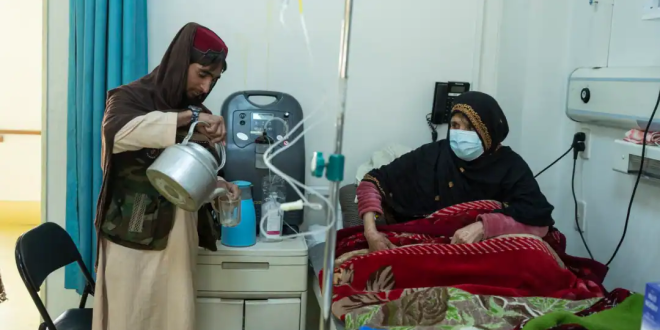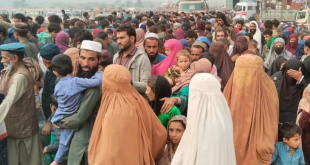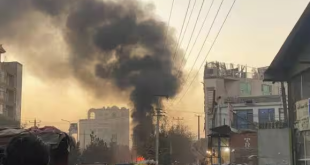KABUL — Afghanistan stands on the brink of a catastrophic healthcare collapse, with the World Health Organization warning Tuesday that over 10 percent of the population could lose access to medical services by the end of this year. The crisis follows sweeping cuts to U.S. humanitarian aid.
The WHO’s country representative, Edwin Ceniza Salvador, told AFP that more than three million Afghans have already been affected by the closure of 364 healthcare facilities nationwide. An additional 220 centers are expected to shut their doors by the third quarter of 2025, jeopardizing care for another two to three million people.
“If this trajectory continues, over half of Afghanistan’s 1,068 medical centers will be non-operational,” Salvador warned. “We are talking about millions of lives potentially left without even the most basic medical care.”
The funding shortfall follows a directive issued earlier this year by former U.S. President Donald Trump to dismantle the U.S. Agency for International Development (USAID) and pull Washington out of the World Health Organization. USAID had previously contributed 42 percent of global humanitarian aid — an annual $42.8 billion lifeline — much of which supported Afghanistan’s fragile healthcare system.
“The remaining donors have tried to fill the void, but the scale of the U.S. funding cannot simply be replaced overnight,” Salvador said.
Decades of conflict have already left Afghanistan’s healthcare system in tatters, contributing to some of the highest maternal and infant mortality rates in the world. With 85 percent of Afghans surviving on less than $1 a day, access to medical care is increasingly a luxury few can afford.
The WHO fears the situation will worsen dramatically, warning of surging outbreaks of malaria, dengue, tuberculosis, and a dangerous drop in immunization rates. The organization is also racing against time to eradicate polio, which remains endemic in only two countries: Afghanistan and neighboring Pakistan.
“The system is already very fragile. What remains is doing its best to cope. But if we don’t address this gap urgently, the consequences will be devastating,” Salvador said.
The United Nations has echoed the alarm, with UNAMA urging international donors this month to continue supporting the 22.9 million Afghans currently in need of humanitarian assistance.
 Afghanistan Times
Afghanistan Times




